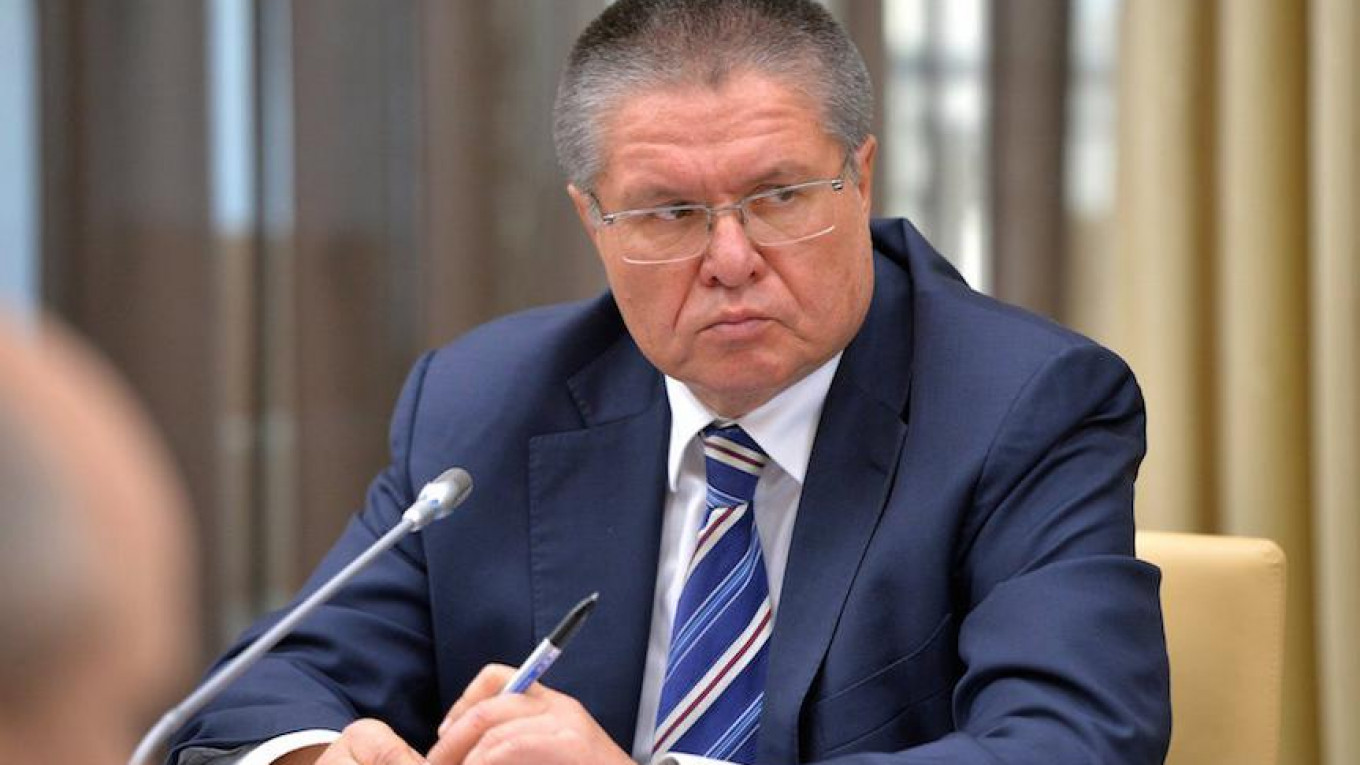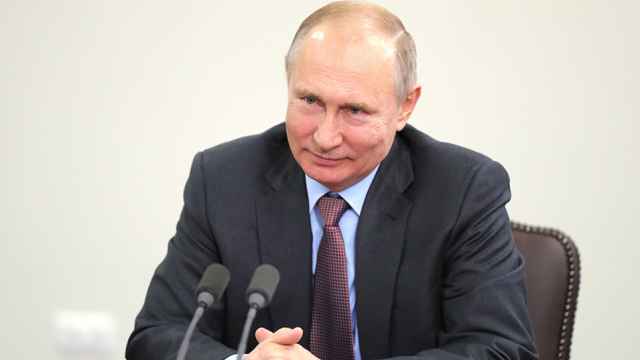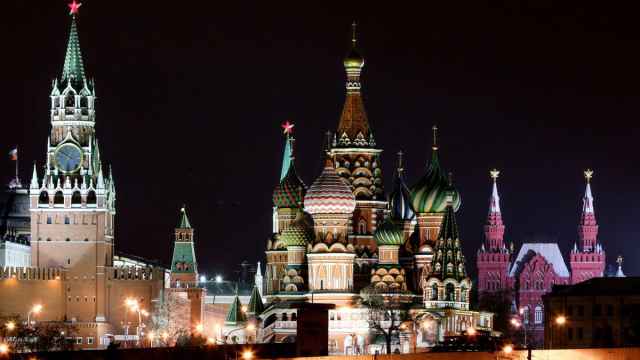President Vladimir Putin may downgrade corruption charges against former Economic Development Minister Alexei Ulyukayev, Russia's Dozhd television channel reported Wednesday.
Corruption charges against Ulyukayev could be replaced with excess of jurisdiction charges: allowing the former minister to dodge a prison sentence or other serious criminal penalties, an unnamed source told the channel.
Ulyukayev was charged with extorting a $2 million bribe from Russia’s state-controlled oil behemoth Rosneft in November 2016 in exchange for providing a “positive assessment” on the company's bid to buy the recently nationalized oil company Bashneft. The minister was swiftly placed under house arrest in what was seen by many as the most notorious corruption case in Russia’s recent history.
Other reports have also indicated that the Kremlin could be softening its stance on Ulyukayev. Earlier this month, a high-ranking official told the Moscow Times that to his knowledge, there was no evidence relating to an extortion in the former minister's case.
Last week, Rosneft CEO Igor Sechin also confirmed that the head of company's security service, Oleg Feoktistov, has resigned. Feoktistov, who served with Russia’s Federal Security Service (FSB) before joining Rosneft, was reported to have orchestrated Ulyukayev’s arrest at the Rosneft offices. One anonymous official told the RBC newspaper that he had been asked to resign after he had “overdone it with the minister."
Politically, Vladimir Putin has already achieved what he wanted with Ulyukayev’s case, a source close to the government told The Moscow Times. Kremlin spokesman Dmitry Peskov told reporters last year that Putin had been aware of the case “from the very beginning," and that it had taken place with his explicit approval.
“The message to the officialdom has been sent," the source said. "There is no need for additional sternness anymore.”
A Message from The Moscow Times:
Dear readers,
We are facing unprecedented challenges. Russia's Prosecutor General's Office has designated The Moscow Times as an "undesirable" organization, criminalizing our work and putting our staff at risk of prosecution. This follows our earlier unjust labeling as a "foreign agent."
These actions are direct attempts to silence independent journalism in Russia. The authorities claim our work "discredits the decisions of the Russian leadership." We see things differently: we strive to provide accurate, unbiased reporting on Russia.
We, the journalists of The Moscow Times, refuse to be silenced. But to continue our work, we need your help.
Your support, no matter how small, makes a world of difference. If you can, please support us monthly starting from just $2. It's quick to set up, and every contribution makes a significant impact.
By supporting The Moscow Times, you're defending open, independent journalism in the face of repression. Thank you for standing with us.
Remind me later.






